- Old Draft: Beatles Folk Memory 1970-1995 - December 8, 2025
- Lights are back on. - December 8, 2025
- From Faith Current: “The Sacred Ordinary: St. Peter’s Church Hall” - May 1, 2023
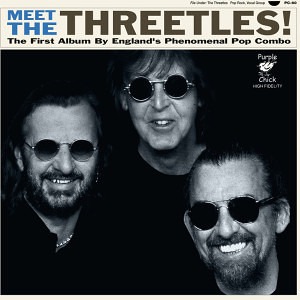
The act you haven’t known…
I awoke this morning to begin my American Thanksgiving, and the first song I heard on KCRW was “Free As A Bird.” (Droll, young hip DJ, very droll.) FAAB is that rarest of B’s: a Beatles song you don’t hear very often.
And rightly so? I remember being delighted by “Free As A Bird” when it emerged in 1995 — not due to the song itself which, then and now, sounds a bit spindly to me, and seems to emphasize the loss of Lennon, rather than celebrate the group. But I loved how it brought a fan question out of the realm of speculation and into reality. No, it’s not what the Beatles would’ve sounded like in 1995, I’m utterly sure of that, but it does answer whether Paul, George and Ringo could make a reasonable pop record from a Lennon demo. Also, it’s impossible for me to separate the Threetles tracks from the hooha that surrounded it, and Anthology was about the best possible outcome of the vault-pilfering that had been going on for at least 15 years. Of course I’d love to see all the footage, hear all the interviews — especially the stuff involving drugs and Yoko that ended up on the cutting-room floor — but Anthology satisfies.
So it says something that, even with all this goodwill, I still don’t like “Free As A Bird” very much. It feels… lugubrious, and I can’t really say that about any other Beatles song. (Maybe “The Long and Winding Road.”) The knock at the time was that it sounded more like Electric Light Orchestra than the Beatles, thanks to FAAB producer Jeff Lynne, who sat in because either 1) George Martin’s hearing was going or, 2) George Martin deep Englishness made him squicky at the entire idea). That knock is 100% accurate — right before “Free As A Bird,” the DJ played something from ELO’s latest. I caught the last 30 seconds of it, and said “that guitar sounds like George Harrison,” through my toothpaste.
Get to the point, Mike
This is all a long preamble to the question I pose in the title: What do you think of “Free As A Bird”? And has your opinion changed since it came out? Mine, I fear, is growing more negative with each passing year. I’m glad they did it for them, especially George who I believe needed the money after the Denis O’Brien swindle, but I increasingly hear the magic that isn’t there.
Here’s the video, in case you haven’t heard the song in a while. All the Beatlesong references can be found on “Free As a Bird”‘s Wikipedia entry.
The Beatles – Free as a Bird from Manny on Vimeo.

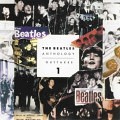
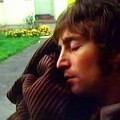
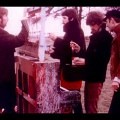
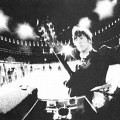
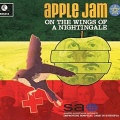
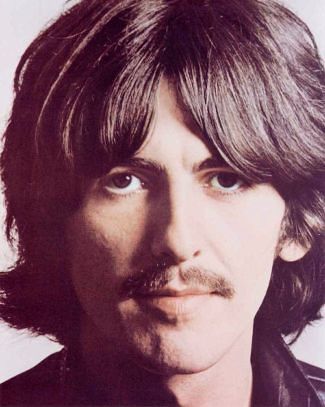
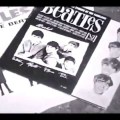
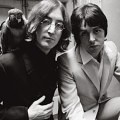

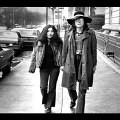
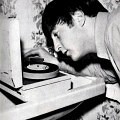
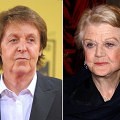
One of the greatest things about John was his hatred of cliche. He never wanted to do anything that had been done before, especially if it had been done by him. As Ringo says, the Beatles never did the same thing once. If John ever used a stock phrase, he would subvert it with a pun. This kept the others on their toes, and kept Paul from his tendency to lapse into lyrical predictability. But by the mid-70s, something (drugs? Yoko? laziness?) changed him. Imagine late 60s John hanging a song on cliches like ‘free as a bird’ and ‘home and dry’ with a straight face. That’s what ruins it for me. Nothing unpredictable or original. Just a bit of Lennon nonsense would have livened it up.
and what about the remixed/altered soundtrack to the video off FAAB on the just released 1+? george, in what sounds like a totally different take, sings ‘the LOVE that we once knew” as opposed to the original ‘the LIFE that we once knew’. not to mention the reversed lennon comment at the finish is reversed–that is to say it is the right way ’round (ie forward).
and the same can be said for remixed sound to the ‘Real Love’ video also–it has a different sound in the intro and the guitar is different as well.
Yeah, lugubrious is the word. Or possibly dreary. I remember I put it on a mix tape right after it came out (literally, a cassette tape! remember those?) and after a couple of listens, I always wound up fast-forwarding through it. I suspect there’s a reason why Lennon left it in the drawer when he went into the studio to record Double Fantasy. I mean, I hate to say it, I so desperately wanted it to be good and I’m glad they made the effort, but it doesn’t really work.
@mythical, totally agree. One wonders if it could have been saved by a stroke of McCartney genius–is that demo so much worse than, say, “She Can Talk To Me,” which turned into the excellent “Hey Bulldog.” I think the Threetles were blinded by the circumstances of the demo–I mean, it made Ringo cry–and then inhibited by John’s awesome absence.
I like the song, personally. I think Harrison’s guitar is awesome, as are Ringo’s drums and the vocal. To each his or her own.
What I find interesting, though, is the “middle eight”, as it has come to be known. The sentiments don’t jive with the rest of the lyric, which is about safety, and coming home to roost, as it were. McCartney’s addition is telling:
—
Whatever happened to
The life that we once knew?
Can we really live without each other?
Where did we lose the touch
That seemed to mean so much?
It always made me feel so free….
—
A good example of Paul giving himself away, I think.
Agreed, @karen. The whole thing is Paul grieving John. And how could it be otherwise?
Spindly is the right word for it – I always thought of it as weak tea.
Funny no one mentioned the other “new” Anthology-era number, “Real Love,” which I think is just wonderful – far better hooks and richer additions from the Other Three. That one’s aged much better…
This is a great post. I remember liking it just fine at the time of its release. Like MM, I had it on a mix tape and I have very specific memories of walking up 3rd Avenue in the snow in my headphones, so this song always makes me think of Christmas and the East Village. So, you know, good association!
But objectively? It’s not great. I HATE the production (sorry, Jeff Lyne) and the song itself isn’t anything special. In general I prefer Lennon as stripped own as possible and this seems this suffers greatly from over-Lynnization.
As far as whether or not they should’ve done it? I’m definitely not a purist about that kind of thing. If they wanted to do it, I’m glad they did. I wasn’t really clamoring for them to work together, but I didn’t care either way. Am I allowed to comment on “Real Love” too? I don’t want to de-rail the conversation.
@Chelsea, you can comment about anything you want, up to and including writing short vignettes in men’s magazine style starring a half-cyborg Martin Luther King.
This is our standing policy.
Now that I’ve got carte blanche from Michael Gerber…
While I liked “Free as a Bird” at the time of issue, I barely remember Real Love. To me, that one was a boring afterthought. Just… yuck.
Anyway, I heard a demo of it on You Tube very recently (can you tell I’ve been out of Beatles fandom for many years?) and found it beautiful and touching! The demo I heard must’ve been the earliest version, because it’s a completely different song. That song depicts the narrator/John as fumbling along, dreaming and scheming until he meets that special person he is destined to meet, who changes his life: “seems like all I really was doing… was waiting for you.” So it’s a very sweet love song about fate and validation and companionship.
Then in later versions, it apparently morphs into a song about how parents just need to give children the love they deserve. Right? Or how we, as a society, need to treat children with love. That’s how I hear it.
But the later version is so… generically dogmatic, I hate it. And I don’t know why he changed it. The original version was fresh and sincere.
Also, while the original demo is lovely, I think it needs to remain as basically a piano-only track. Neither version needs heavy orchestration. Definitely not the frickin’ Jeff Lynne treatment! So basically I think it was a mistake to cover/Beatle-ize this song.
@ChelseaQW, use your power only for good, never evil.
I think the version you like is the version I know best, off the “Dakota Beatle Demos” CD. So many of those songs are lovely, but very few of them I think would stand up to full arrangements. They’re lovely because they’re the private musical thoughts of one of the greatest songwriters of the 20th Century, in a period of self-imposed psychological exile. If you take them out of that precise context, they fall apart like a jellyfish on the beach — as I think “Free As A Bird” and “Real Love” both did. That’s why the Lynne treatment seems so overbearing.
But hearing Lennon composing, then slip into “September Song” — priceless.
“A jellyfish on the beach.” Holy crap, that’s poetic.
Yes, it goes doubly for “Now and Then” (which I’d also never heard until a few weeks ago). I’m horrified that they tried to gang bang that gentle wisp of a song! I’m relieved George quickly pulled the plug on that and let Paul abscond with it (where he can make sweet sweet sonic love to it in private).
Where can I find this Dakota Beatles Demos??
@Chelsea, follow the link to BootlegZone; that will have the tracklisting; then you can hear all the tracks on YouTube.
“jellyfish on the beach” is poetic as hell. Also sounds like a Lennon-in-exile jam. Where do I obtain these “Dakota Beatles Demos?”
Also, was “Real Love” one of the demos on the “For Paul” tape? If so, do you know which version?
“Anyway, I heard a demo of it on You Tube very recently (can you tell I’ve been out of Beatles fandom for many years?) and found it beautiful and touching! The demo I heard must’ve been the earliest version, because it’s a completely different song.”
I agree. The demo is a beautiful song – so, so, so much better than The Threetles’ version which – in my opinion – strips away its beauty and the actual magic and strength of the song and the melody of the demo version.
I, too, like the song. I’m an emotional person, and so the nostalgia factors in for me. Always. I can’t appraise any Beatles– or Threetles– song otherwise. Yes, the middle eight does veer off into other territory. But it makes for nearly a dialogue. John speaking… then Paul speaking.
The middle eight is my favorite part of the song. It’s the only part that seems to spread out and communicate.
As far as picking Jeff Lynn to produce, I could have sworn I read ( I think in Peter Doggett’s book if I’m not mistaken) that Lynn was picked by George because they were friends. As for the song, I agree with what everyone else says, but strangely, at the same time, I can’t say that I dislike the song. I like the lyrics, especially Paul’s contribution, yes they are revealing. I like the melody, and George’s guitar break in the middle really is lovely. So there are a lot of positives. However there is also something missing. Maybe if they had used the Martins or even produced it themselves, it would have gained something. Or maybe it’s simply that the magic was just not there anymore. I guess you really can’t go back.
Andy Peebles is talking!
http://www.dailymail.co.uk/news/article-3337924/The-dark-truth-Yoko-Ono-revealed-BBC-DJ-Andy-Peebles.html
George Martin did tasteful orchestration for Grow Old Along With Me
https://www.youtube.com/watch?v=A49B0ds55J4
I’ve always wondered what he thought of Jeff Lynne’s production of the other two demos.
Well, I should have done some research before asking the above question:
RCM: When Paul, George and Ringo recorded the two new Beatles songs, Free As A Bird and Real Love, did they ask you to be involved?
George Martin: I kind of told them I wasn’t too happy with putting them together with the dead John. I’ve got nothing wrong with dead John but the idea of having dead John with live Paul and Ringo and George to form a group, it didn’t appeal to me too much. In the same way that I think it’s okay to find an old record of Nat King Cole’s and bring it back to life and issue it, but to have him singing with his daughter is another thing. So I don’t know, I’m not fussy about it but it didn’t appeal to me very much. I think I might have done it if they asked me, but they didn’t.
RCM: Did you enjoy Jeff Lynne’s production of Free As A Bird and Real Love?
GM: I thought what they did was terrific; it was very very good indeed. I don’t think I would have done it like that if I had produced it.
RCM: What would you have done differently?
GM: Well, you see the way they did it you must remember the material they had to deal with was very difficult. It was a cassette that John had placed on top of his piano, played and sang. The piano was louder than the voice, and the voice wasn’t very clear and the rhythm was all over the place. So they tried to separate the voice and the piano, not very successfully.
Then they tried to put it into a rigid time beat so they could overdub easily other instruments. So they stretched it and compressed it until it got to a regular waltz and then they were done. The result was, in order to conceal the bad bits, they had to plaster it fairly heavily, so what you ended up with was quite a thick homogeneous sound that hardly stops. There’s not much dynamic in it.
The way I would have tackled it if I had the opportunity would have been the reverse of that. I would have looked at the song as a song and got The Beatles together and say ‘what can we do with this song?’ bearing in mind we have got John around as well somewhere. I would have actually have started to record a song and I would have dropped John into it.
I wouldn’t have made John the basis of it. So where possible I would have used instruments probably and we would then try and get his voice more separate and use him for the occasional voice so it would become a true partnership of voices. Whether that would be practical or not I don’t know, this is just theoretically the way I would tackle it.
– See more at: http://www.rockcellarmagazine.com/2013/04/16/interview-beatles-producer-george-martin-looks-back/#sthash.dpsiAdUP.dpuf
My God, that would’ve been 1000% better.
And this just in: if George Martin was any more English, he’d explode.
What a great find. Thanks for that. Well… it’s a testament to the man’s talents that he had – in his head any way – a detailed idea of where he would’ve have gone with it even though he wasn’t involved.
As a slightly younger Fabs fan Christmas always reminds me of growing up with the Anthology series, first the TV shows then unwrapping those double CDs and finally, a few years later, absorbing the pages on that giant silver tome. I Grew up when the story already had an ending. i remember Free as a Bird was a massive event. I had been a fan since I was 11 and something new was just the most exciting thing in the world but even i knew it was never going to really be The Beatles. Even then it felt like marketing – A way of promoting the telly show and Anthology 1 CDs. they weren’t sexy young men anymore, they were old men with grey hair and a dodgy dress sense.
Now I’m older it means a lot more to me to see footage and photos of them together again. It always amuses me how people find it crazy how they saw so little of each other from 1969 onwards. that’s life. Unless you never leave your home town, and you grown old with the same friends you went to school with that’s just normal for a lot of people. Seeing those old friends again once or twice a year means inevitable nostalgia about the good old days. The big difference here is everyone else in the world has got in there first and we want to talk about it too, that must get a bit much sometimes.
i feel like poor Paul has a lot of demons when it comes to the Beatles, like he has to apologise for his ambition, for not staying close to John or for patronising his ‘baby brother’ George , It would have been great if he could just say “They were being bunch of twats but to be honest I was too” but for what ever reason he can’t. I like the lyrics he added to Free as a Bird and I agree that it’s the best part of the song. it’s great when those four guys deal with emotion honestly, that sometimes things are hard and relationships are painful.
There’s no doubt that Jeff Lynne’s involvement was all George. George probably wanted to feel like someone had his back in the studio. I bet Paul felt a bit outnumbered and quite vulnerable, what with Linda taking ill as well. At the time they made a big deal about the complexities of getting that rough tape match-fit, removing hiss etc. More was talked about that than the lyrics and meaning of the song, which is a shame.
It’s funny that when Paul chose to go back to recording his own stuff straight after he had Jeff Lynne producing, Ringo was on there too but not George. Some of that album reeks of nostagia, Was that a result of his work on the Anthology project or was it because that’s what he thought people wanted?
Anyway. My point is, I think Free as a Birds was really important for Paul. More than anyone else, he had to fix history somehow. However, this couldn’t be the Paul McCartney show anymore so it couldn’t as explicit as that. I sort of imagine him tiptoeing around George at little bit. In a way i want Free as Bird to be a celebration but at the same time i want a song that speak with real emotion. Therefore, the John demo is crucial but the middle eight is the real song to me.
This comment sums up my feelings pretty accurately, too, @JimiBob. Thank you.
I think the last thing that George wanted was to put himself at the mercy of Paul McCartney In The Studio. And I can’t really blame him.
The only thing I’d add here is, I get a strong sense from George of “I’m only in this for the money, goddamn you Denis O’Brien.” George can give off a meditator’s vibe of detachment from the passing madness…which can drop into sourness or disdain, if he’s not being disciplined. He mostly has this under control during FAAB/RL and the Anthology. But sometimes you see him slip a bit.
I also think, for me, The Anthology is inextricably linked to the explosion of pristine Beatles vault tracks that happened in the early 90s — I can’t think of Anthology without a silent thank-you to Vigotone, Great Dane, et al. I think the fact that someone was making money off this stuff was a huge impelling force, especially to Yoko. Otherwise, why would Yoko ever agree?
“It’s funny that when Paul chose to go back to recording his own stuff straight after he had Jeff Lynne producing, Ringo was on there too but not George. Some of that album reeks of nostagia, Was that a result of his work on the Anthology project or was it because that’s what he thought people wanted?”
As far as I can recall from a couple of McCartney interviews, his studio album following the ‘Anthology’ project (‘Flaming Pie’) was indeed influenced by him revisiting his roots during ‘Anthology.’ Personally, I think, in terms of influence on ‘Flaming Pie’, I also hear a lot of musical licks and sounds that hark back to not only The Beatles, but Paul’s past solo output too – from the ‘McCartney’ album up until about ‘Tug of War.’
Hey, I just remembered reading once that there was a manuscript of the lyrics to Free as a Bird… with lyrics written (by John) for the middle eight (that I guess never made it on to John’s actual demo)? Am I making this up? Does this story sound familiar to anyone? I googled it but couldn’t find anything to corroborate this random recollection.
.
All this time I thought the part “Whatever happened to, the life that we once knew…” part was entirely Paul’s addition. But tonight I’m listening to this early take, and it seems John wrote that line. Paul finished it:
https://www.youtube.com/watch?v=LZClS79egCM
The Threetles – in hindsight (ah! hindsight) – should have steered clear of Jeff Lynne for production duties perhaps. Just for the record, I like ‘Free As Bird’ myself, but I don’t think – after we’re all dead and gone – that history will look upon it as a classic. Not that it’ll be looked on as a complete load of ole crap either, but it’s just… well… ordinary (by Beatles’ standards). Even in 1995, it sounded old and irrelevant – something The Beatles never were – so that was a disappointing taste in my mouth at the time (even though – as I say – I liked it).
Any way, back to Lynne. Well, he was chosen because, yes – he was George’s close friend and George recommended him. Paul (in perhaps wanting to encourage a long-delayed solidarity to the Beatles band dynamic – especially with regards to George given what had happened during The Beatles’ studio years – agreed to Lynne’s presence – perhaps – with little or no argument, although he probably wouldn’t have had a choice but to allow Harrison more room for manoeuvre any way.
Furthermore… It’s no secret, is it, that George – like John – felt that old Beatles producer George Martin was always prone to dedicating more of his time and efforts towards Paul in the studio during The Beatles years and – again – Paul probably let George Harrison have some slack in the 1990s during the Threetles sessions by accepting George’s request for Lynne instead of Martin – hence perhaps why Martin was never approached. Incidentally, the ‘official’ claim that Martin “couldn’t” do it because he was hard of hearing is, it seems if we’re to believe Martin, not true – as Martin has stated by claiming that he wasn’t even asked. Yeah, sure, he was suffering from hearing loss during his later years, that’s true – but, but… the ‘official’ claim that he wasn’t involved because of that is a bit of a misnomer. I mean… hard of hearing or not… Couldn’t he have been called in as a supervising producer or something along those lines? After all, he was often dubbed ‘the third Beatle.’ Would The Beatles have recorded the classics they did and captivated the world of music they way they did without his input? In my opinion, no. He contributed to The Beatles’ sound – which is rather obvious to me, hence why the solo albums were often lacking that final touch of finesse. Leaving him out of the sessions would be like leaving out Brian Epstein from being interviewed for the ‘Anthology’ documentaries had he lived. In the studio, George Martin WAS the fifth Beatle. Martin was integral to The Beatles’ sound, so, by leaving him out of the Beatles ‘reunion’ recordings, they were effectively not honouring what the reunion should have been in terms of the songs that were dusted off and rehashed.
Also – and this might be an important element to ponder on – Paul – by the looks of it – made efforts to accommodate Harrison’s insecurities by not bringing in Martin and making it all about Paul – but – surely – by bringing in Lynne because he was Harrison’s friend makes it more about George than Paul or Ringo? That’s not fair on the face of it perhaps? If they (or, George in particular) were seeking true solidarity and balance in the studio/band dynamic, then they should have brought in some one of huge talent and vision – but who was impartial to any one member of The Beatles membership. Some one perhaps who was of the time – or, in harsher words – a young man (Nigel Godrich perhaps – a Parlophone stalwart who did a great work on Paul’s ‘Chaos and Creation’ album and who was also riding high in that decade through his classic work with Radiohead). Jeff Lynne – to me – as talented as he clearly is, made ‘Free As A Bird’ sound like ELO. And let’s not forget… ELO back in the day were accused of trying to sound like The Beatles. In effect, by choosing him, The Threetles were at risk of making their ‘comeback’ songs sound like pastiches of themselves. Hell! The Rutles sounded less pastichy than ELO!
In 2015, GIles Martin and company mad a new remix of Free as a bird and Real Love. It improved both songs. I like them more now. The remixes can be found on thd DVD and Blue Ray of 1+.
I like the ’64 version:
https://www.youtube.com/watch?v=hFhpwAADfcE